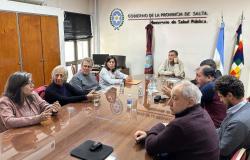She is known as the eternal president of the Federation of Cuban Women for her work in this field.
As a new anniversary marks the physical death of the revolutionary Vilma Espín Guillois, heroine of the Sierra Maestra and honorary president of the Federation of Cuban Women, Cubans remember her fight for women’s rights and for the construction of a nation fairer.
READ ALSO:
Cuba rejects presence of US nuclear submarine
The revolutionary born on April 7, 1930 dedicated her entire life to defending women’s rights and thinking about and building a more just nation.
Vilma Espín opened the door to what would be an institution that would allow the full incorporation of women into working life, providing them with independence and economic stability, from the direction of the Federation of Cuban Women (FMC) in 1960.
Daycare centers would be created as a space for care and learning, where children receive a complete education from an early age, allowing parents to better know and guide their children.
The president of the National Assembly of People’s Power (Parliament), Esteban Lazo, stated that Espín is an example and a symbol of Cuban women, and that her contribution is found in the island’s Family Code.
Espín implemented his scientific skills in real life to help society. After the success of the Cuban Revolution on January 1, 1959, she led the country’s main policies to guarantee women’s full access to their rights.
She is known as the eternal president of the Federation of Cuban Women for her work in this field.
She led the battle for the emancipation of women in order to protect equality, which is evident in the current application of the National Advancement Program for Women.
Around 400 delegates and guests participated in the XI Congress of the feminist organization in honor of Espín, where the efforts made, as well as the achievements and difficulties faced due to the United States blockade against the Caribbean nation, were analyzed.
He also made progress in education, agriculture and health in various parts of the country. In addition, thousands of women participated in agricultural contingents, counseling houses, study centers and the women’s publishing house as testimonies of their numerous struggles for female empowerment.
Author: teleSUR – nbb -SH
Source: Granma – Workers – Cubadebate





